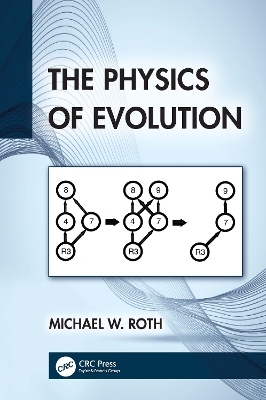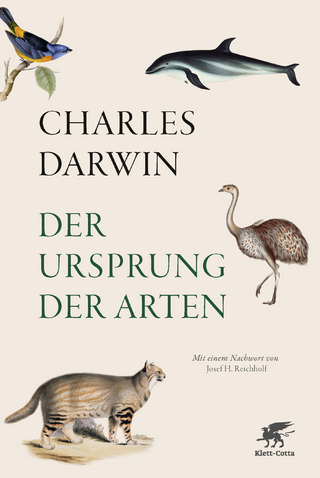
The Physics of Evolution
CRC Press (Verlag)
978-1-032-49042-7 (ISBN)
Many fields of science and engineering have come up against the problem of complex design—when details become so numerous that computer power alone cannot make progress. Nature solved the complex-design problem using evolution, yet how it did so has been a mystery. Both laboratory experiments and computer-simulation attempts eventually stopped evolving. Something more than Darwin’s ideas of heredity, variation, and selection was needed.
The solution is that there is a fourth element to evolution: ecological change. When a new variation is selected, this can change the ecology, and the new ecology can create new opportunities for even more new variations to be selected. Through this endless cycle, complexity can grow automatically. This book uses the physics of resource flow to describe this process in detail, developing quantitative models for many evolutionary processes, including selection, multicellularity, coevolution, sexual reproduction, and the Serengeti Rules. The text demonstrates that these models are in conceptual agreement with numerous examples of biological phenomena, and reveals, through physics, how complex design can arise naturally.
This will serve as a key text on the part physics plays in evolution, and will be of great interest to students at the university level and above studying biophysics, physics, systems biology, and related fields.
After getting a PhD in physics at the University of Illinois at Urbana-Champaign, Michael Roth was inspired by Richard Dawkins’ The Blind Watchmaker and the study of evolution became a nearly lifelong interest for him. Following a postdoc at Fermilab, he joined The Johns Hopkins University Applied Physics Laboratory (JHUAPL) where he served in many scientific leadership roles until retirement. He has major publications in several fields including theoretical physics, geophysics, neural networks (aka deep learning), biophysics, and instrumentation. He was a Co-Chairman for several conferences. He has also served as a JHUAPL group supervisor and as the Book Review Editor and Editor-in-Chief of IEEE Transactions on Neural Networks. After retirement from JHUAPL, he devoted his time to his longtime interest in evolution.
1. Fundamentals Chapter 2. Fertility 3. Scavengers 4. Predators 5. Arms Races 6. Trophic Cascades 7. Parasites and Pathogens 8. Serengeti 9. Summary Discussion Appendix A. Density-Dependent Regulation Appendix B. Selection Theorem Proofs
| Erscheinungsdatum | 17.07.2023 |
|---|---|
| Zusatzinfo | 127 Line drawings, black and white; 127 Illustrations, black and white |
| Verlagsort | London |
| Sprache | englisch |
| Maße | 156 x 234 mm |
| Gewicht | 280 g |
| Themenwelt | Naturwissenschaften ► Biologie ► Evolution |
| Naturwissenschaften ► Physik / Astronomie ► Angewandte Physik | |
| Weitere Fachgebiete ► Land- / Forstwirtschaft / Fischerei | |
| ISBN-10 | 1-032-49042-X / 103249042X |
| ISBN-13 | 978-1-032-49042-7 / 9781032490427 |
| Zustand | Neuware |
| Informationen gemäß Produktsicherheitsverordnung (GPSR) | |
| Haben Sie eine Frage zum Produkt? |
aus dem Bereich


